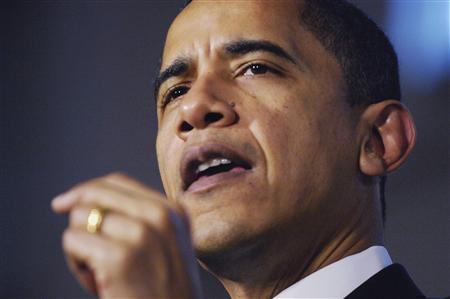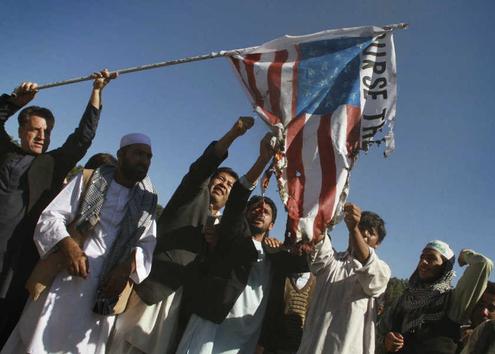US President Barack Obama warnn against a hasty drawdown from Afghanistan, as anger grows over a massacre committed by a US soldier who killed and burned 16 civilians on Sunday.
 US President Barack Obama warnn against a hasty drawdown from Afghanistan, as anger grows over a massacre committed by a US soldier who killed and burned 16 civilians on Sunday.
US President Barack Obama warnn against a hasty drawdown from Afghanistan, as anger grows over a massacre committed by a US soldier who killed and burned 16 civilians on Sunday.
After a weekend poll said most Americans believe the war is not worth the cost and want an early withdrawal, Obama warned the US public against a quick withdrawal.
"It's important for us to make sure that we get out in a responsible way, so that we don't end up having to go back in", Obama said in an interview with CBS station KDKA in Pittsburgh.
"But what we don't want to do, is to do it in a way that is just a rush for the exits", he said, stressing the need for an "orderly" withdrawal to get US personnel and equipment out, and to "prevent Al-Qaeda rebuilding".
Yet while warning against a precipitous pullout, Obama said in a separate interview with Denver CBS affiliate KCNC that it was "important for us just to make sure that we are not in Afghanistan longer than we need to be".
“DEATH TO AMERICA” Meanwhile, hundreds of angry Afghans took to streets on Tuesday, protesting against the US killings.
Meanwhile, hundreds of angry Afghans took to streets on Tuesday, protesting against the US killings.
About 400 university students in the eastern city of Jalalabad shouted "Death to America -- Death to (Barack) Obama", burning the US president in effigy and blocking the main highway to Kabul.
"Jihad (holy war) is the only way to get the invading Americans out of Afghanistan," one banner read, before the protesters dispersed peacefully after about two hours.
The demonstration came after the US embassy in Kabul warned its citizens to be on their guard.
This wave of anger came just two weeks after Afghans were outraged after US soldiers burned copies of the holy Quran at US airbase in Bagram.
The Jalalabad students also echoed Afghan parliament as they demanded a public trial for the Occupation soldier who committed the killing.
The United States said the soldier would be subject to US military law -- and that he could “face execution if convicted”.
Briefing reporters en route to a visit to Kyrgyzstan, Defense Secretary Leon Panetta was asked if the death penalty could apply. "My understanding is in these instances that could be a consideration," he said.